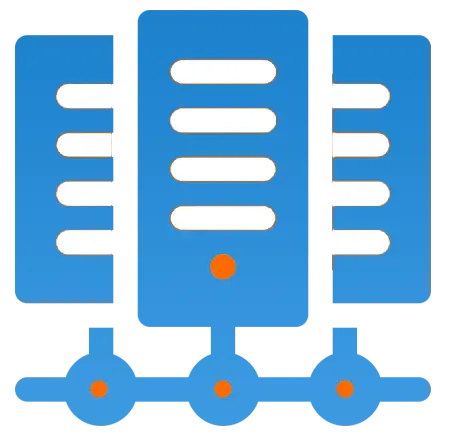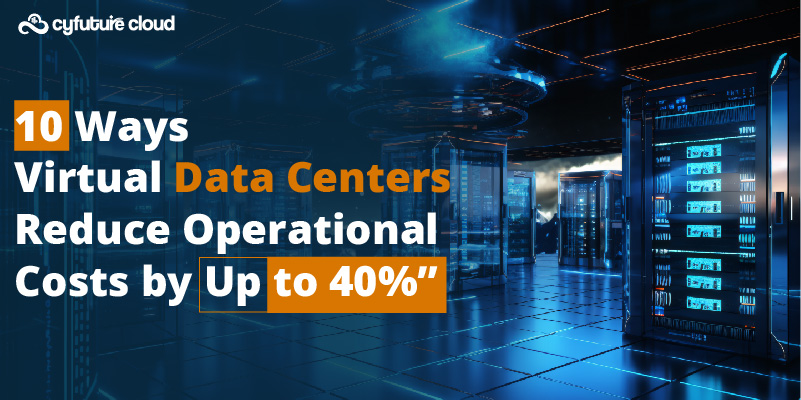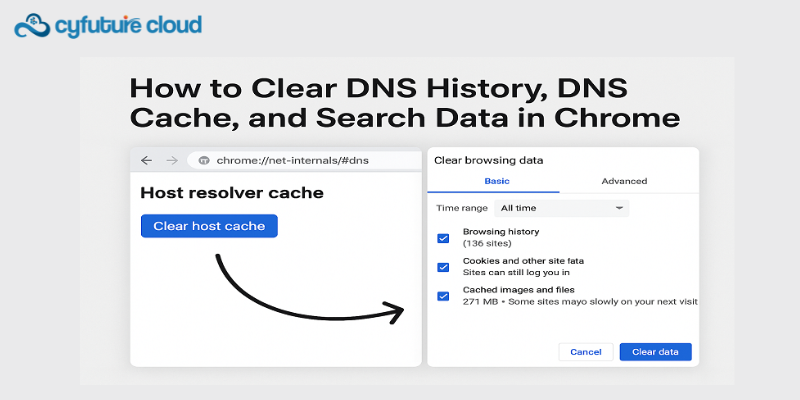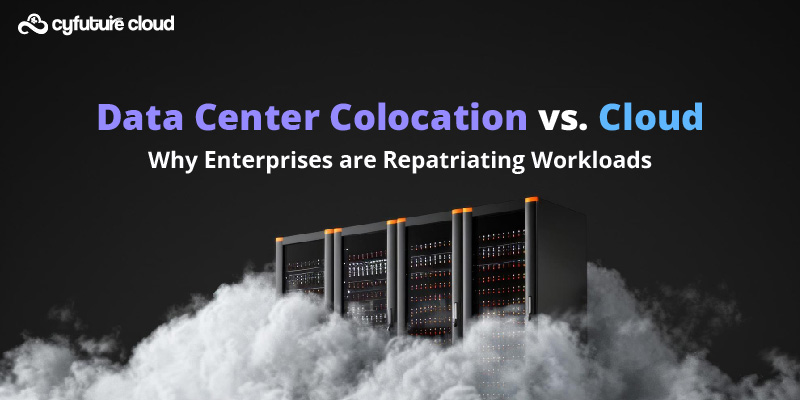Get 69% Off on Cloud Hosting : Claim Your Offer Now!
- Products
-
Compute
Compute
- Predefined TemplatesChoose from a library of predefined templates to deploy virtual machines!
- Custom TemplatesUse Cyfuture Cloud custom templates to create new VMs in a cloud computing environment
- Spot Machines/ Machines on Flex ModelAffordable compute instances suitable for batch jobs and fault-tolerant workloads.
- Shielded ComputingProtect enterprise workloads from threats like remote attacks, privilege escalation, and malicious insiders with Shielded Computing
- GPU CloudGet access to graphics processing units (GPUs) through a Cyfuture cloud infrastructure
- vAppsHost applications and services, or create a test or development environment with Cyfuture Cloud vApps, powered by VMware
- Serverless ComputingNo need to worry about provisioning or managing servers, switch to Serverless Computing with Cyfuture Cloud
- HPCHigh-Performance Computing
- BaremetalBare metal refers to a type of cloud computing service that provides access to dedicated physical servers, rather than virtualized servers.
-
Storage
Storage
- Standard StorageGet access to low-latency access to data and a high level of reliability with Cyfuture Cloud standard storage service
- Nearline StorageStore data at a lower cost without compromising on the level of availability with Nearline
- Coldline StorageStore infrequently used data at low cost with Cyfuture Cloud coldline storage
- Archival StorageStore data in a long-term, durable manner with Cyfuture Cloud archival storage service
-
Database
Database
- MS SQLStore and manage a wide range of applications with Cyfuture Cloud MS SQL
- MariaDBStore and manage data with the cloud with enhanced speed and reliability
- MongoDBNow, store and manage large amounts of data in the cloud with Cyfuture Cloud MongoDB
- Redis CacheStore and retrieve large amounts of data quickly with Cyfuture Cloud Redis Cache
-
Automation
Automation
-
Containers
Containers
- KubernetesNow deploy and manage your applications more efficiently and effectively with the Cyfuture Cloud Kubernetes service
- MicroservicesDesign a cloud application that is multilingual, easily scalable, easy to maintain and deploy, highly available, and minimizes failures using Cyfuture Cloud microservices
-
Operations
Operations
- Real-time Monitoring & Logging ServicesMonitor & track the performance of your applications with real-time monitoring & logging services offered by Cyfuture Cloud
- Infra-maintenance & OptimizationEnsure that your organization is functioning properly with Cyfuture Cloud
- Application Performance ServiceOptimize the performance of your applications over cloud with us
- Database Performance ServiceOptimize the performance of databases over the cloud with us
- Security Managed ServiceProtect your systems and data from security threats with us!
- Back-up As a ServiceStore and manage backups of data in the cloud with Cyfuture Cloud Backup as a Service
- Data Back-up & RestoreStore and manage backups of your data in the cloud with us
- Remote Back-upStore and manage backups in the cloud with remote backup service with Cyfuture Cloud
- Disaster RecoveryStore copies of your data and applications in the cloud and use them to recover in the event of a disaster with the disaster recovery service offered by us
-
Networking
Networking
- Load BalancerEnsure that applications deployed across cloud environments are available, secure, and responsive with an easy, modern approach to load balancing
- Virtual Data CenterNo need to build and maintain a physical data center. It’s time for the virtual data center
- Private LinkPrivate Link is a service offered by Cyfuture Cloud that enables businesses to securely connect their on-premises network to Cyfuture Cloud's network over a private network connection
- Private CircuitGain a high level of security and privacy with private circuits
- VPN GatewaySecurely connect your on-premises network to our network over the internet with VPN Gateway
- CDNGet high availability and performance by distributing the service spatially relative to end users with CDN
-
Media
-
Analytics
Analytics
-
Security
Security
-
Network Firewall
- DNATTranslate destination IP address when connecting from public IP address to a private IP address with DNAT
- SNATWith SNAT, allow traffic from a private network to go to the internet
- WAFProtect your applications from any malicious activity with Cyfuture Cloud WAF service
- DDoSSave your organization from DoSS attacks with Cyfuture Cloud
- IPS/ IDSMonitor and prevent your cloud-based network & infrastructure with IPS/ IDS service by Cyfuture Cloud
- Anti-Virus & Anti-MalwareProtect your cloud-based network & infrastructure with antivirus and antimalware services by Cyfuture Cloud
- Threat EmulationTest the effectiveness of cloud security system with Cyfuture Cloud threat emulation service
- SIEM & SOARMonitor and respond to security threats with SIEM & SOAR services offered by Cyfuture Cloud
- Multi-Factor AuthenticationNow provide an additional layer of security to prevent unauthorized users from accessing your cloud account, even when the password has been stolen!
- SSLSecure data transmission over web browsers with SSL service offered by Cyfuture Cloud
- Threat Detection/ Zero DayThreat detection and zero-day protection are security features that are offered by Cyfuture Cloud as a part of its security offerings
- Vulnerability AssesmentIdentify and analyze vulnerabilities and weaknesses with the Vulnerability Assessment service offered by Cyfuture Cloud
- Penetration TestingIdentify and analyze vulnerabilities and weaknesses with the Penetration Testing service offered by Cyfuture Cloud
- Cloud Key ManagementSecure storage, management, and use of cryptographic keys within a cloud environment with Cloud Key Management
- Cloud Security Posture Management serviceWith Cyfuture Cloud, you get continuous cloud security improvements and adaptations to reduce the chances of successful attacks
- Managed HSMProtect sensitive data and meet regulatory requirements for secure data storage and processing.
- Zero TrustEnsure complete security of network connections and devices over the cloud with Zero Trust Service
- IdentityManage and control access to their network resources and applications for your business with Identity service by Cyfuture Cloud
-
-
Compute
- Solutions
-
Solutions
Solutions
-
 Cloud
Hosting
Cloud
Hosting
-
 VPS
Hosting
VPS
Hosting
-
GPU Cloud
-
 Dedicated
Server
Dedicated
Server
-
 Server
Colocation
Server
Colocation
-
 Backup as a Service
Backup as a Service
-
 CDN
Network
CDN
Network
-
 Window
Cloud Hosting
Window
Cloud Hosting
-
 Linux
Cloud Hosting
Linux
Cloud Hosting
-
Managed Cloud Service
-
Storage as a Service
-
 VMware
Public Cloud
VMware
Public Cloud
-
 Multi-Cloud
Hosting
Multi-Cloud
Hosting
-
 Cloud
Server Hosting
Cloud
Server Hosting
-
 Bare
Metal Server
Bare
Metal Server
-
 Virtual
Machine
Virtual
Machine
-
 Magento
Hosting
Magento
Hosting
-
Remote Backup
-
 DevOps
DevOps
-
 Kubernetes
Kubernetes
-
 Cloud
Storage
Cloud
Storage
-
NVMe Hosting
-
 DR
as s Service
DR
as s Service
-
-
Solutions
- Marketplace
- Pricing
- Resources
- Resources
-
By Product
Use Cases
-
By Industry
- Company
-
Company
Company
-
Company
All You Need To Know About Cloud Data Management
Table of Contents
Cloud data management refers to storing, organizing, and managing data in a cloud computing environment. It includes everything from storing data in a cloud-based storage system and creating backups for disaster recovery to integrating data from different sources and applying security measures to protect it from unauthorized access.
The main advantage of cloud data management is that it allows organizations to store and access large amounts of data without needing expensive on-premises hardware and infrastructure. It also makes it easier for organizations to scale up their data storage and processing capabilities as needed without incurring additional costs.
Additionally, cloud data management can help organizations improve the security of their data by providing features such as encryption and access controls. It can also make it easier to comply with regulations and industry standards, as many cloud data management systems include built-in governance and compliance features. Cloud data management aims to enable organizations to effectively store, access, and analyze their data while ensuring that it is secure and compliant with relevant regulations.
This blog delves into Data Management in Cloud Computing, covering its key components, importance, and how-tos.
Let’s get started!
Key Components of Cloud Data Management
There are several key components of cloud data management. The same are enlisted and explained below:
Data storage: This involves storing data in a cloud-based storage system, such as Amazon S3 or Google Cloud Storage. These systems provide scalable and highly available storage for data and can be accessed over the internet.
Data backup and recovery: This involves creating copies of data and storing them in a different location so that they can be recovered in the event of a disaster or data loss. This is typically done using cloud-based backup and recovery services, such as AWS Backup or Google Cloud Backup.
Data security: This involves protecting data from unauthorized access or tampering, through the use of security measures such as encryption and access controls. Cloud data management systems often include built-in security features, such as encryption at rest and in transit, as well as access controls and auditing capabilities.
Data integration: This involves integrating data from different sources and formats, and making it available for analysis and reporting. This can be done using data integration tools and techniques, such as extract, transform, and load (ETL) processes.
Data governance: This involves establishing policies and procedures for managing and controlling data, in order to ensure its integrity, security, and compliance with regulations. This can include defining roles and responsibilities for data management, as well as implementing processes for data retention, archiving, and deletion.
Why is Cloud Data Management Important?
Cloud data management is important because it enables organizations to store, access, and analyze their data in a secure, scalable, and cost-effective manner. Cloud data management is important for several reasons:
Cost savings: Storing data in the cloud can be more cost-effective than maintaining on-premises storage infrastructure.
Scalability: Cloud data management systems are highly scalable, making it easy for organizations to increase their data storage and processing capacity as needed.
Security: Cloud data management systems often include built-in security features, such as encryption and access controls, which can help protect data from unauthorized access or tampering.
Accessibility: Cloud data management systems can be accessed from anywhere with an internet connection, making it easy for authorized users to access and work with data from any location.
Data integration: Cloud data management systems can make it easier to integrate data from different sources and formats, and make it available for analysis and reporting.
Compliance: Many cloud data management systems include built-in governance and compliance features, which can help organizations meet regulatory requirements and industry standards.
How to use Cloud Data Management?
Cloud data management allows organizations to manage their data rather than infrastructure. By subscribing to cloud data management services or using cloud data management software on public or hybrid clouds, organizations can handle a variety of use cases without the need to worry about maintaining their own infrastructure. This helps organizations focus on managing their data and achieving their business goals. There are several ways that organizations can use cloud data management:
Store data in a cloud-based storage system: Organizations can use cloud-based storage systems, such as Amazon S3 or Google Cloud Storage, to store data in the cloud. These systems provide scalable and highly available storage for data and can be accessed over the internet.
Create backups for disaster recovery: Organizations can use cloud-based backup and recovery services, such as AWS Backup or Google Cloud Backup, to create copies of their data and store them in a different location. This can help ensure that data can be recovered in the event of a disaster or data loss.
Secure data with encryption and access controls: Organizations can use cloud data management systems that include built-in security features, such as encryption and access controls, to protect data from unauthorized access or tampering.
Integrate data from different sources: Organizations can use data integration tools and techniques, such as extract, transform, and load (ETL) processes, to integrate data from different sources and formats, and make it available for analysis and reporting.
Establish data governance policies: Organizations can establish policies and procedures for managing and controlling data, in order to ensure its integrity, security, and compliance with regulations. This can include defining roles and responsibilities for data management, as well as implementing processes for data retention, archiving, and deletion.
Key Aspects of Data Management in Cloud Computing:
| Aspect | Description |
|---|---|
| Storage | Utilizes distributed storage systems for data across multiple servers |
| Scalability | Allows seamless expansion or reduction of storage capacity based on demand |
| Accessibility | Provides remote access to data from any location with an internet connection |
| Security | Implements encryption, access controls, and compliance measures for data protection |
| Backup and Recovery | Offers automated backup solutions and efficient recovery mechanisms |
| Data Processing | Utilizes parallel processing and distributed computing for data analytics |
| Cost Efficiency | Optimizes resource usage to minimize costs while meeting data demands |
| Compliance | Ensures adherence to regulatory and industry standards for data management |
Challenges & Opportunities of Cloud Data Management
The top challenges and opportunities of cloud data management are enlisted below:
Challenges
Security: One of the main challenges of cloud data management is ensuring the security of data stored in the cloud. This includes protecting data from unauthorized access or tampering, as well as complying with relevant regulations and industry standards.
Integration: Another challenge is integrating data from different sources and formats, and making it available for analysis and reporting. This can require specialized skills and tools and can be time-consuming and complex.
Cost: The cost of cloud data management can be a concern for some organizations, especially if they have large amounts of data that need to be stored and managed.
Governance: Ensuring that data is properly governed and compliant with regulations can be a challenge, especially for organizations with complex data management requirements.
Opportunities
Cost savings: One of the main benefits of cloud data management is the potential for cost savings. By storing data in the cloud, organizations can reduce their need for expensive on-premises storage infrastructure.
Scalability: Cloud data management systems are highly scalable, making it easy for organizations to increase their data storage and processing capacity as needed.
Accessibility: Cloud data management systems can be accessed from anywhere with an internet connection, making it easy for authorized users to access and work with data from any location.
Security: Cloud data management systems often include built-in security features, such as encryption and access controls, which can help protect data from unauthorized access or tampering.
Compliance: Many cloud data management systems include built-in governance and compliance features, which can help organizations meet regulatory requirements and industry standards.
Take Away
Cyfuture Cloud excels at managing data in the cloud. We use top tech and skilled teams to securely store and handle your data. Our service works for all types of businesses, big or small. We have you covered whether you have lots of data or need to keep your important files safe.
With Cyfuture Cloud, you can trust us to handle your data well. We have solid systems and know-how to keep your data safe in the cloud, and we make sure only the right people can access it. Plus, our service grows with your needs, so you can store more data without any worries.
In short, Cyfuture Cloud offers easy and reliable data management in cloud computing. You can focus on your business while we care for your data needs.
Recent Post

Stay Ahead of the Curve.
Join the Cloud Movement, today!
© Cyfuture, All rights reserved.
Send this to a friend

 Pricing
Calculator
Pricing
Calculator
 Power
Power
 Utilities
Utilities VMware
Private Cloud
VMware
Private Cloud VMware
on AWS
VMware
on AWS VMware
on Azure
VMware
on Azure Service
Level Agreement
Service
Level Agreement 


















